Firm Dynamics and Employment Outcomes
The group “Firm Dynamics and Employment Outcomes” analyses the foundation, evolution, and failure of firms, and subsequent consequences for individuals and regions. The group works on research questions around firm behaviour to explain recent phenomena such as business dynamism slowdown and wage inequality.
A central question to understand firm dynamism, mobility, innovation and the process of creative destruction is on the role of government interference. In this respect, the team analyses how connections of firms to politicians shape the business environment and to what extent firms benefit from having a political connection.
At the firm level, the group studies performance measures such as employment, sales, and market exit and investigates public procurement contracts, subsidies and political initiatives in terms of law proposals and draft laws that implicitly may generate higher entry barriers and distorts competition. This research will be informative for the overall economic environment and economic prosperity.
The way economies generate economic prosperity is central to our understanding of social mobility and welfare. Over the last three decades, Germany and the United States have shown similar productivity improvements. The way these improvements have been generated, however, differ remarkably. While startups in the United States are well-known for their innovation and radical advancements, the German business model relies to a large extent on established incumbent firms in the process of innovation and new technologies. The research group considers empirically and theoretically the role of entrepreneurship in this process and how it differs between Germany and the United States.
Understanding firm behaviour and the role of firms in our society contributes to the political and academic discussion on wage inequality and regional disparities. The sorting process of high productive workers into high productive firms has amplified over the last three decades with important implications for wages and aggregate inequality. Thus, the group examines the consequences of wage inequality between firms and to what extent selective mobility contributes to wage disparities.
The research group “Firm Dynamics and Employment Outcomes” further studies implications of innovative activities in the form of patenting on within-firm wage inequality. Examining impacts of new technologies and worker-level consequences will be informative about winners and losers in our society and informs policy makers on how to take action in terms of reskilling certain groups of the workforce.
The research group makes use of various administrative, survey and hand-collected data. The Establishment History Panel (BHP) provided by the Institute for Employment Research (IAB) and the Mannheim Enterprise Panel (MUP) provided by the Leibniz Centre for European Economic Research (ZEW) provide firm-level information on the performance of firms over time. At the individual level, IAB’s Integrated Employment Biographies (IEB) allows to study regional and wage mobility patterns of workers. European Patent Office data provide the basis for patenting activities. Web-scraped and survey data on political activities and opinions are exploited to study differential behaviour of politicians in parliament.
Workpackage 1: Business Dynamism, Firm Performance and Political Connections
Workpackage 2: Wage Inequality, Innovation and Firms
Workpackage 3: Shades of Capitalism: The Role of Entrepreneurship for Innovation and Business Dynamism in Germany and the United States
Research Cluster
Productivity and InstitutionsYour contact

- Department Structural Change and Productivity
EXTERNAL FUNDING
01.2020 ‐ 06.2024
The Rise of Populist Parties in Europe: The Dark Side of Globalization and Technological Change?
VolkswagenStiftung
Globalisation may have increased prosperity in general, but has also led to unemployment, wage inequality, outward migration and, thus, ageing populations in many European regions. This project examines whether these economic burdens lead to votes for populist parties.
01.2019 ‐ 06.2022
MICROPROD („Raising EU Productivity: Lessons from Improved Micro Data“)
Europäische Kommission
The goal of MICROPROD is to contribute to a greater understanding of the challenges brought about in Europe by the fourth industrial revolution and the associated ‘productivity puzzle’ in a context of globalisation and digitisation, and to provide alternative policy options to better address these challenges.
This project has received funding from the European Union’s Horizon 2020 research and innovation programme under grant agreement No 764810.
07.2018 ‐ 12.2020
Firm Wage Differentials in Imperfect Labour Markets: The Role of Market Power and Industrial Relations in Rent Splitting between Workers and Firms
German Research Foundation (DFG)
The main purpose of this proposal is to grasp a firmer understanding of how employment rents are split between workers and employers in imperfect labour markets and how labour market institutions, such as unions and works councils, influence the distribution of rents. In that it not only promises new insights into the wage formation process and the likely consequences of important labour market trends like falling unionisation and worker codetermination, but also promises to inform important public policy debates, such as which rights should be granted to organised labour.
02.2019 ‐ 09.2019
Evaluation of the IAB Establishment Panel 2018 and Preparation of a Results Report for West and East Germany
Final report: Fehlende Fachkräfte in Deutschland – Unterschiede in den Betrieben und mögliche Erklärungsfaktoren: Ergebnisse aus dem IAB-Betriebspanel 2018. IAB-Forschungsbericht 10/2019. (in German, English abstract available)
04.2016 ‐ 03.2019
Wage and Employment Effects of Bankruptcies
German Research Foundation (DFG)
The project analyzes the process and the consequences of firm failure. For the first time, evidence on the consequences of small firms’ bankruptcy on employees’ earnings and wages is provided. The project e.g. shows that employees of small firms are more likely to see their employer failing but, at the same time, face smaller earnings and wage losses than employees displaced from larger firms. Check the below research articles for further insights.
01.2018 ‐ 12.2018
Evaluation of the IAB Establishment Panel 2017 and Preparation of a Results Report for West and East Germany
Final report: Lohnunterschiede zwischen Betrieben in Ost- und Westdeutschland: Ausmaß und mögliche Erklärungsfaktoren. Ergebnisse aus dem IAB-Betriebspanel 2017. IAB-Forschungsbericht 6/2018. (in German, English abstract available)
01.2017 ‐ 09.2017
Evaluation of the IAB Establishment Panel 2016 and Preparation of a Results Report for West and East Germany
Final report: Produktivitätsunterschiede zwischen West- und Ostdeutschland und mögliche Erklärungsfaktoren. Ergebnisse aus dem IAB-Betriebspanel 2016. IAB-Forschungsbericht 16/2017. (in German, English abstract available)
Refereed Publications
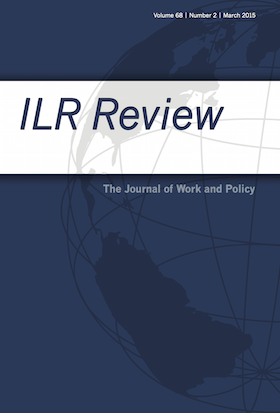
Do Start-ups Provide Employment Opportunities for Disadvantaged Workers?
in: ILR Review, No. 5, 2019
Abstract
This article compares the hiring patterns of start-ups and incumbent firms to analyze whether start-ups offer relatively more job opportunities to disadvantaged workers. Using administrative linked employer–employee data for Germany that provide the complete employment biographies of newly hired workers, the authors show that young firms are more likely than incumbents to hire applicants who are older, foreign, or unemployed, or who have unstable employment histories, arrive from outside the labor force, or were affected by a plant closure. Analysis of entry wages shows that penalties for these disadvantaged workers, however, are higher in start-ups than in incumbent firms. Therefore, even if start-ups provide employment opportunities for certain groups of disadvantaged workers, the quality of these jobs in terms of initial remuneration appears to be low.
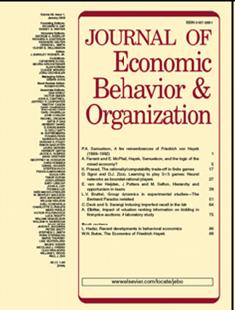
The Internet Effects on Sex Crime Offenses – Evidence from the Broadband Internet Expansion in Germany
in: Journal of Economic Behavior and Organization, September 2019
Abstract
This paper studies the effects of the introduction of a new mass medium on sex crime in Germany. I use unique data on criminal offenses and broadband internet measured at the municipal level to shed light on this issue. In order to address endogeneity in broadband internet availability, I exploit technical peculiarities at the regional level that determine the roll-out of high-speed internet. Results provide evidence of a substitution effect of internet exposure on sex crime. The substitution effect is neither driven by differences in reporting behavior, nor by matching processes at the victim and offender side. This suggests that the consumption of extreme media plays an important role in explaining the documented high-speed internet effect.
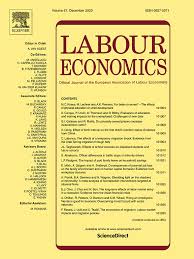
Does Extended Unemployment Benefit Duration Ameliorate the Negative Employment Effects of Job Loss?
in: Labour Economics, 2019
Abstract
We study the effect of job displacement due to bankruptcies on earnings and employment prospects of displaced workers and analyse whether extended potential unemployment benefit duration (PBD) ameliorates the negative consequences of job loss. Using German administrative linked employer-employee data, we find that job loss has long-lasting negative effects on earnings and employment. Displaced workers also more often end up in irregular employment relationships (part-time, marginal part-time employment, and temporary agency work) than their non-displaced counterparts. Applying a regression discontinuity approach that exploits a three months PBD extension at the age threshold of 50 we find hardly any effects of longer PBD on labour market outcomes of displaced workers.

HIP, RIP, and the Robustness of Empirical Earnings Processes
in: Quantitative Economics, No. 3, 2019
Abstract
The dispersion of individual returns to experience, often referred to as heterogeneity of income profiles (HIP), is a key parameter in empirical human capital models, in studies of life‐cycle income inequality, and in heterogeneous agent models of life‐cycle labor market dynamics. It is commonly estimated from age variation in the covariance structure of earnings. In this study, I show that this approach is invalid and tends to deliver estimates of HIP that are biased upward. The reason is that any age variation in covariance structures can be rationalized by age‐dependent heteroscedasticity in the distribution of earnings shocks. Once one models such age effects flexibly the remaining identifying variation for HIP is the shape of the tails of lag profiles. Credible estimation of HIP thus imposes strong demands on the data since one requires many earnings observations per individual and a low rate of sample attrition. To investigate empirically whether the bias in estimates of HIP from omitting age effects is quantitatively important, I thus rely on administrative data from Germany on quarterly earnings that follow workers from labor market entry until 27 years into their career. To strengthen external validity, I focus my analysis on an education group that displays a covariance structure with qualitatively similar properties like its North American counterpart. I find that a HIP model with age effects in transitory, persistent and permanent shocks fits the covariance structure almost perfectly and delivers small and insignificant estimates for the HIP component. In sharp contrast, once I estimate a standard HIP model without age‐effects the estimated slope heterogeneity increases by a factor of thirteen and becomes highly significant, with a dramatic deterioration of model fit. I reach the same conclusions from estimating the two models on a different covariance structure and from conducting a Monte Carlo analysis, suggesting that my quantitative results are not an artifact of one particular sample.
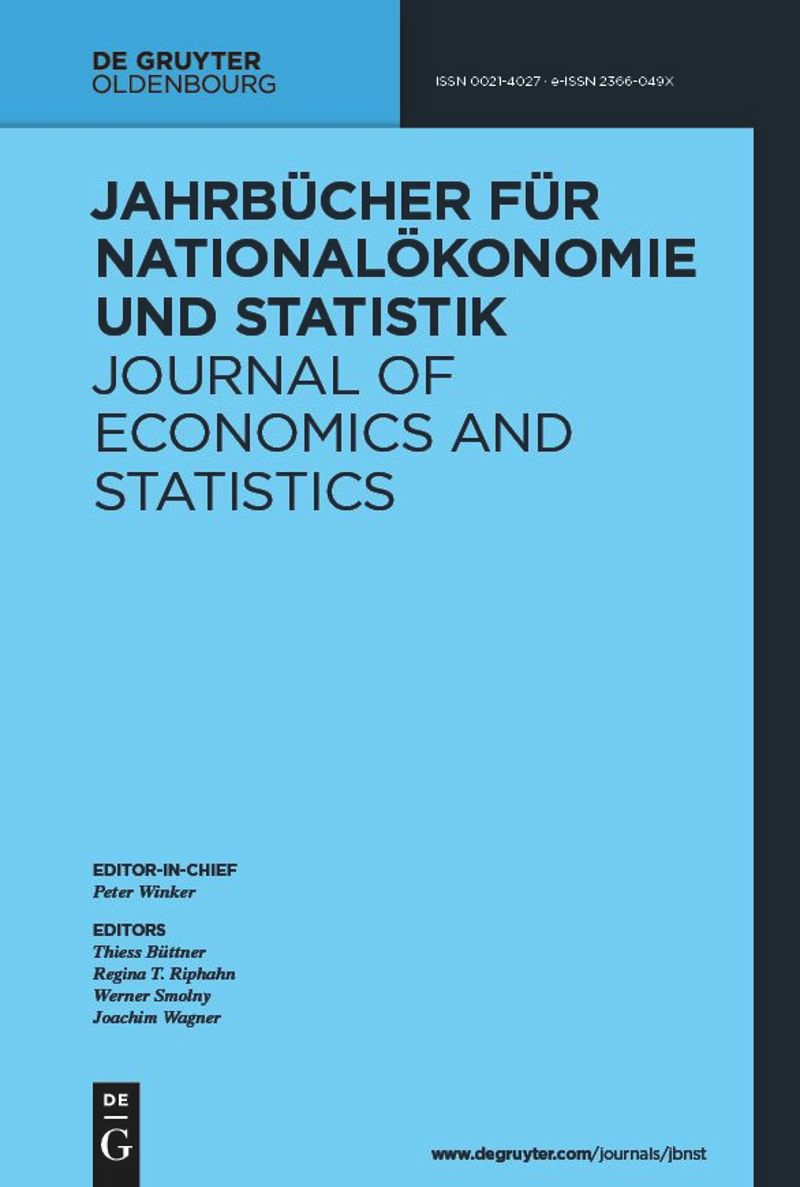
Industrial Relations: Worker Codetermination and Collective Wage Bargaining
in: Jahrbücher für Nationalökonomie und Statistik, No. 1, 2019
Abstract
Trade unions and employers’ associations, collective bargaining, and employee representation at the workplace are the cornerstones of industrial relations systems in many developed countries. Germany stands out as a country with powerful works councils and a high coverage rate of collective bargaining agreements, supported by encompassing interest groups of employees and employers and by the state. The German case and the perceived stability of its industrial relations regime have attracted considerable attention among researchers and politicians, which also has to do with the country’s high productivity, comparably few strikes, and relatively minor employment problems. However, in recent years industrial relations in many countries including Germany have come under pressure and the fact that there is no obvious and clearly superior alternative to the current regime of industrial and labour relations may not be sufficient to guarantee the survival of the present system.
Working Papers
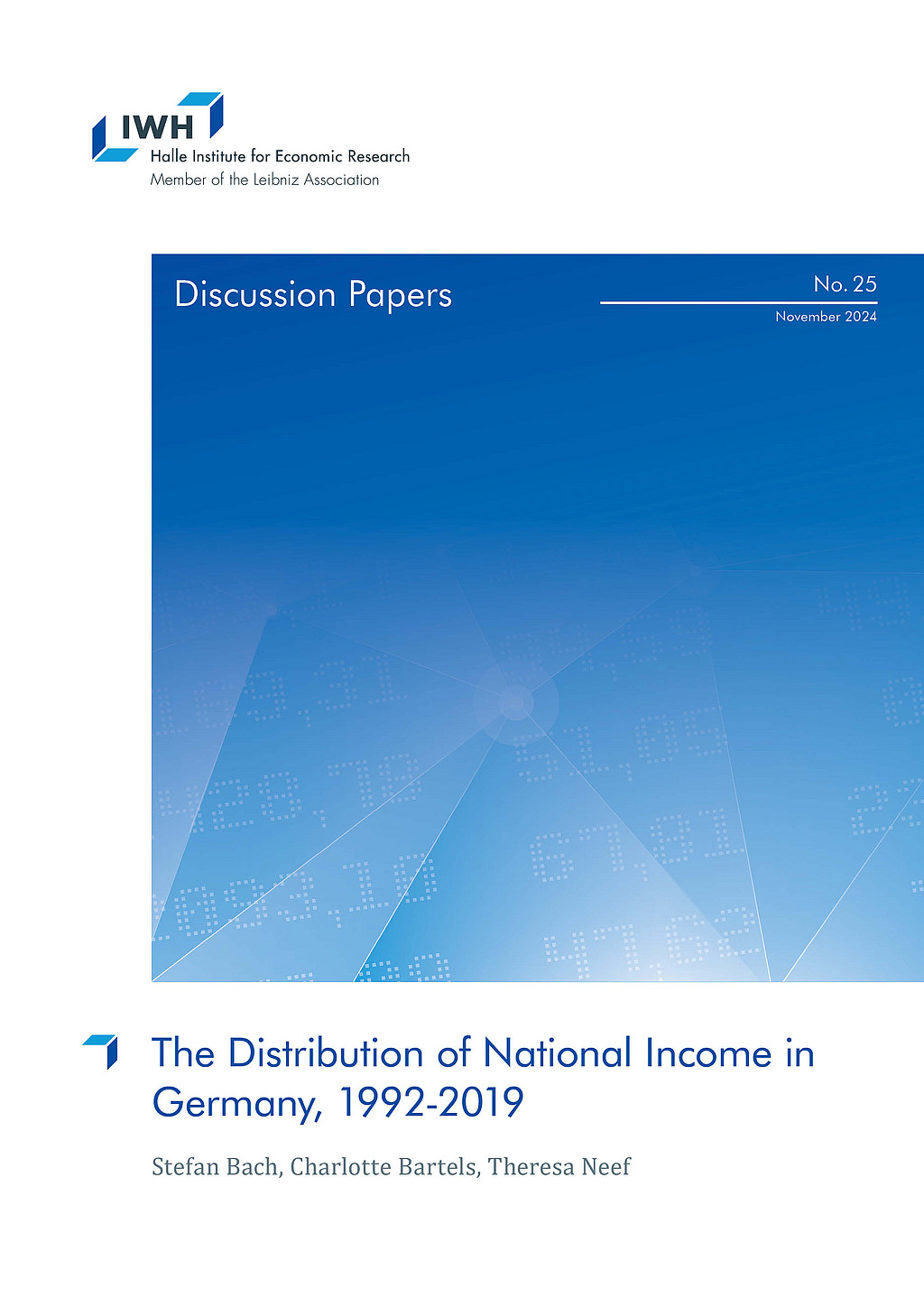
The Distribution of National Income in Germany, 1992-2019
in: IWH Discussion Papers, No. 25, 2024
Abstract
<p>This paper analyzes the distribution and composition of pre-tax national income in Germany since 1992, combining personal income tax returns, household survey data, and national accounts. Inequality rose from the 1990s to the late 2000s due to falling labor incomes among the bottom 50% and rising incomes in the top 10%. This trend reversed after 2007 as labor incomes across the bottom 90% increased. The top 1% income share, dominated by business income, remained relatively stable between 1992 and 2019. A large share of Germany’s top 1% earners are non-corporate business owners in labor-intensive professions. At least half of the business owners in P99-99.9 and a quarter in the top 0.1% operate firms in professional services – a pattern mirroring the United States. From 1992 to 2019, Germany’s top 0.1% income concentration exceeded France’s and matched U.S. levels until the late 2000s.</p>
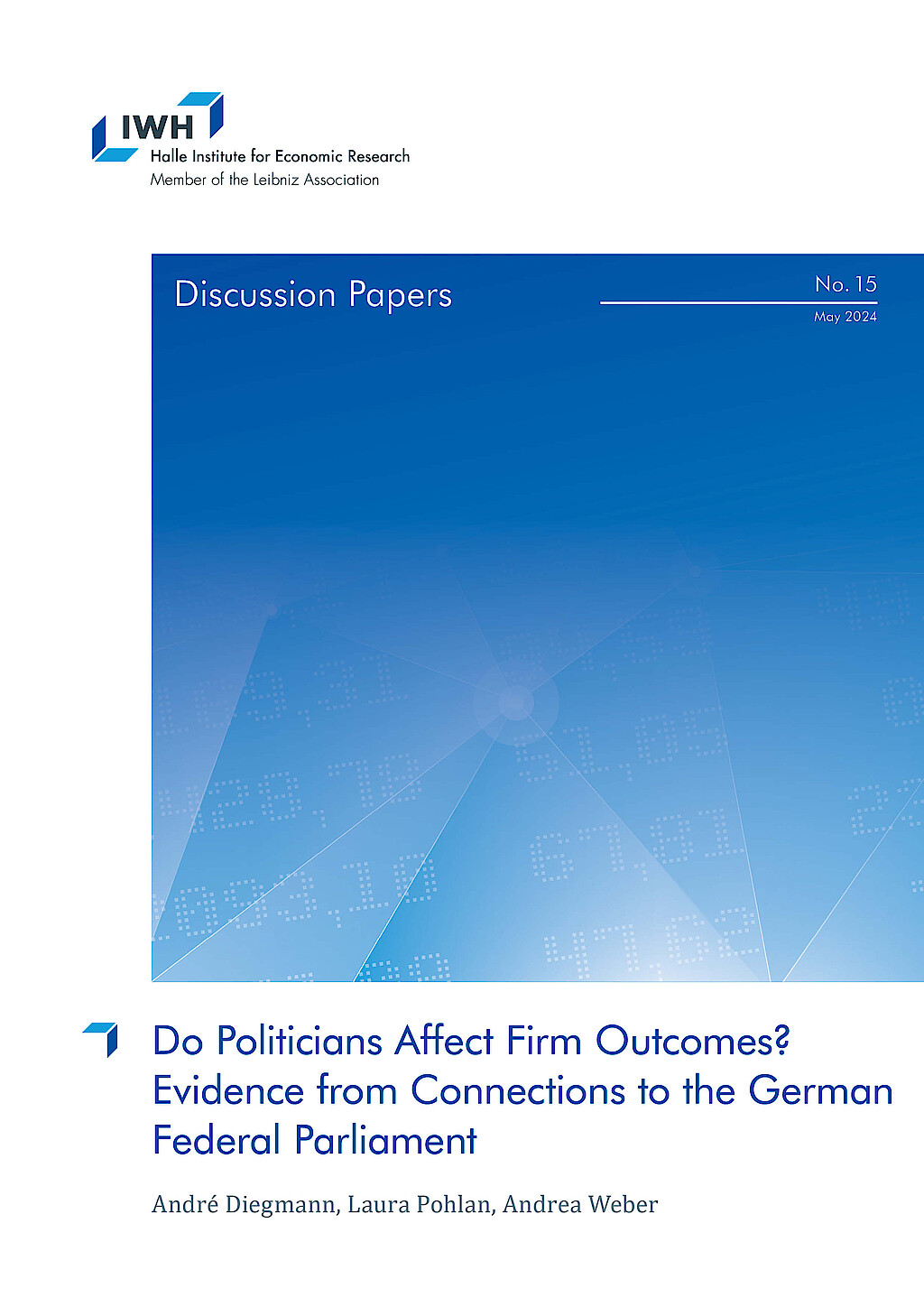
Do Politicians Affect Firm Outcomes? Evidence from Connections to the German Federal Parliament
in: IWH Discussion Papers, No. 15, 2024
Abstract
<p>We study how connections to German federal parliamentarians affect firm dynamics by constructing a novel dataset linking politicians and election candidates to the universe of firms. To identify the causal effect of access to political power, we exploit (i) new appointments to the company leadership team and (ii) discontinuities around the marginal seat of party election lists. Our results reveal that connections lead to reductions in firm exits, gradual increases in employment growth without improvements in productivity. Adding information on credit ratings, subsidies and procurement contracts allows us to distinguish between mechanisms driving the effects over the politician’s career.</p>
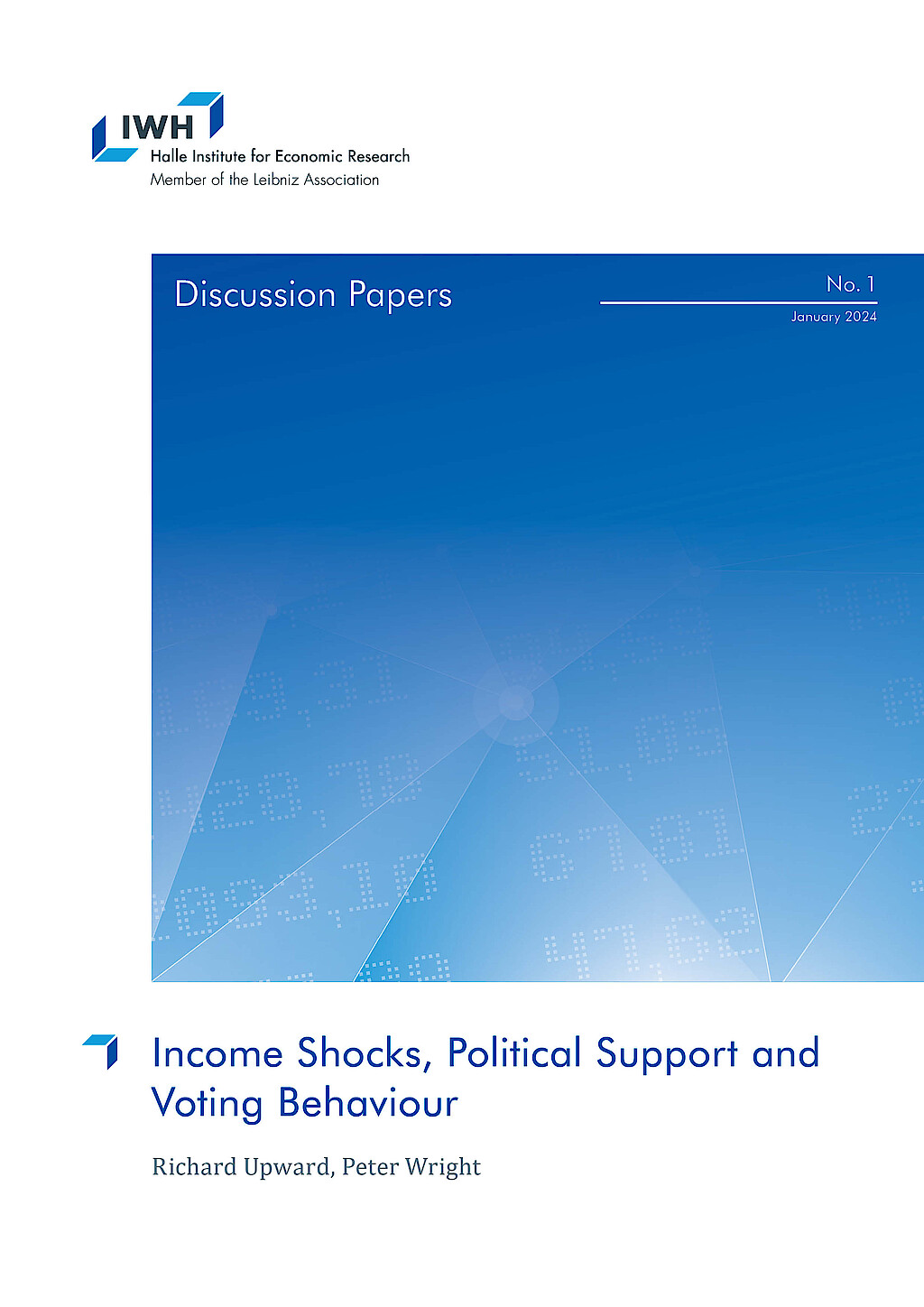
Income Shocks, Political Support and Voting Behaviour
in: IWH Discussion Papers, No. 1, 2024
Abstract
We provide new evidence on the effects of economic shocks on political support, voting behaviour and political opinions over the last 25 years. We exploit a sudden, large and long-lasting shock in the form of job loss and trace out its impact on individual political outcomes for up to 10 years after the event. The availability of detailed information on households before and after the job loss event allows us to reweight a comparison group to closely mimic the job losers in terms of their observable characteristics, pre-existing political support and voting behaviour. We find consistent, long-lasting but quantitatively small effects on support and votes for the incumbent party, and short-lived effects on political engagement. We find limited impact on the support for fringe or populist parties. In the context of Brexit, opposition to the EU was much higher amongst those who lost their jobs, but this was largely due to pre-existing differences which were not exacerbated by the job loss event itself.
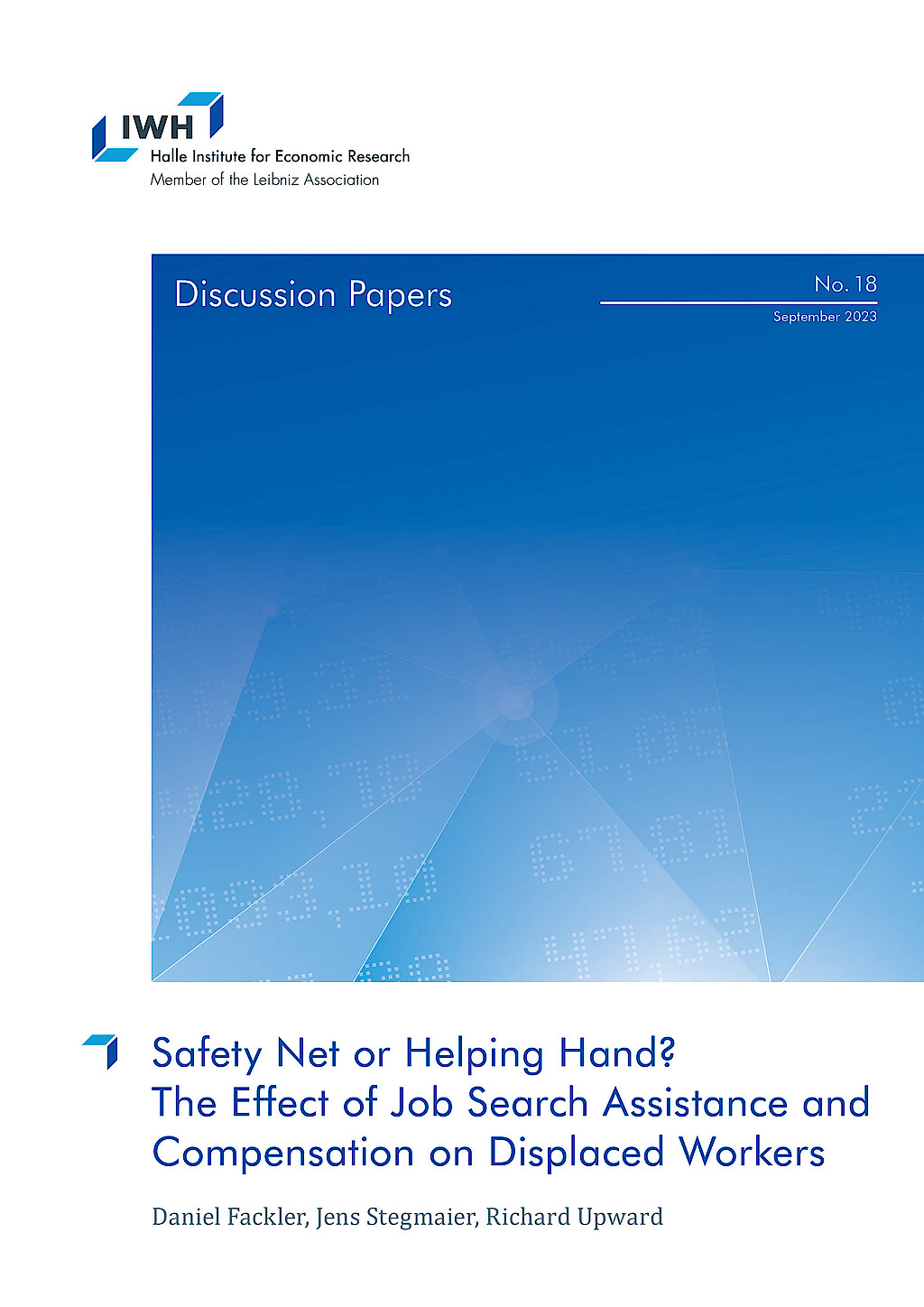
Safety Net or Helping Hand? The Effect of Job Search Assistance and Compensation on Displaced Workers
in: IWH Discussion Papers, No. 18, 2023
Abstract
We provide the first systematic evidence on the effectiveness of a contested policy in Germany to help displaced workers. So-called “transfer companies” (<i>Transfergesellschaften</i>) employ displaced workers for a fixed period, during which time workers are provided with job-search assistance and are paid a wage which is a substantial fraction of their pre-displacement wage. Using rich and accurate data on workers’ employment patterns before and after displacement, we compare the earnings and employment outcomes of displaced workers who entered transfer companies with those that did not. Workers can choose whether or not to accept a position in a transfer company, and therefore we use the availability of a transfer company at the establishment level as an IV in a model of one-sided compliance. Using an event study, we find that workers who enter a transfer company have significantly worse post-displacement outcomes, but we show that this is likely to be the result of negative selection: workers who lack good outside opportunities are more likely to choose to enter the transfer company. In contrast, ITT and IV estimates indicate that the use of a transfer company has a positive and significant effect on employment rates five years after job loss, but no significant effect on earnings. In addition, the transfer company provides significant additional compensation to displaced workers in the first 12 months after job loss.
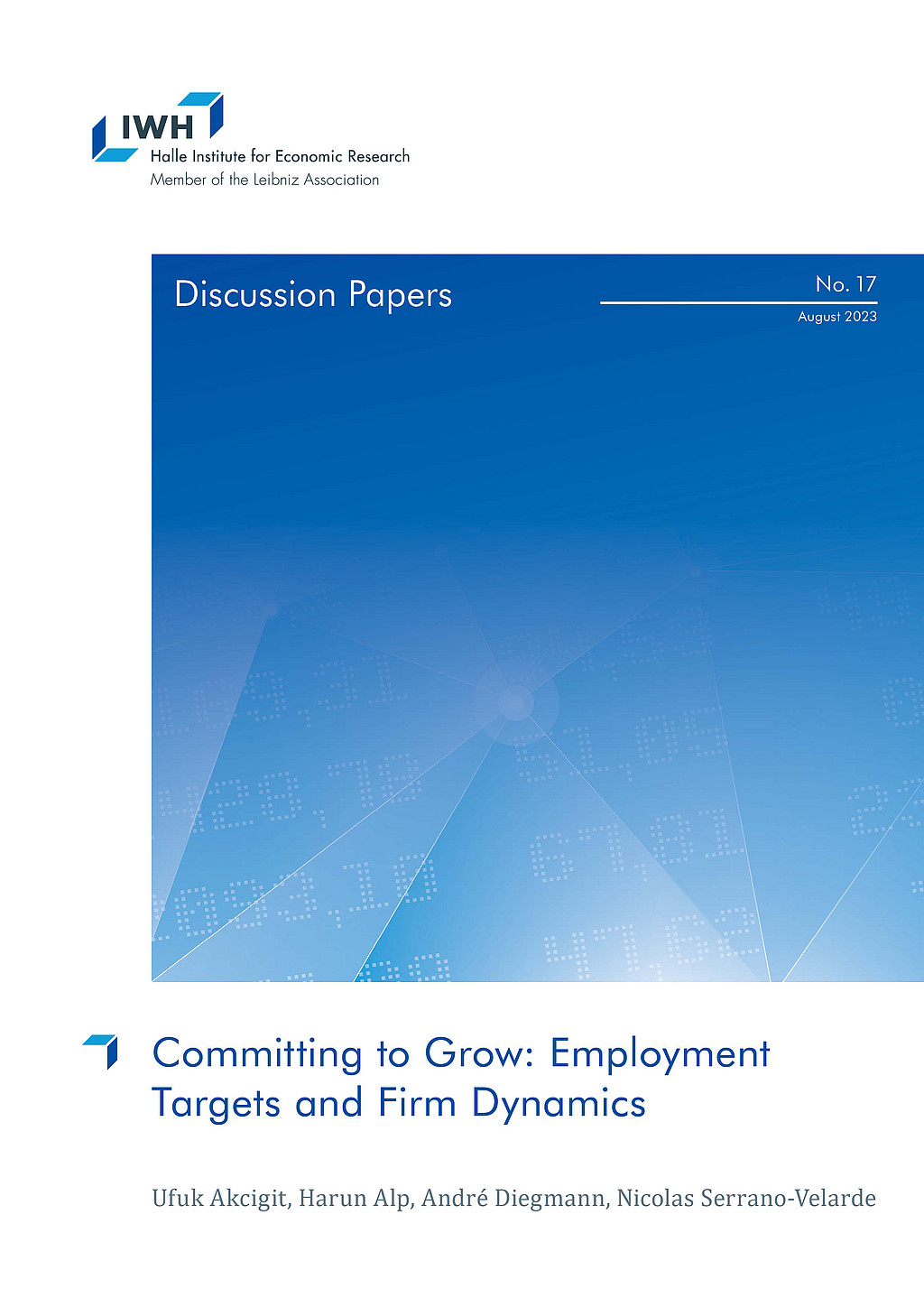
Committing to Grow: Employment Targets and Firm Dynamics
in: IWH Discussion Papers, No. 17, 2023
Abstract
<p>We examine effects of government-imposed employment targets on firm behavior. Theoretically, such policies create “polarization,“ causing low-productivity firms to exit the market while others temporarily distort their employment upward. Dynamically, firms are incentivized to improve productivity to meet targets. Using novel data from East German firms post-privatization, we find that firms with binding employment targets experienced 25% higher annual employment growth, a 1.1% higher annual exit probability, and 10% higher annual productivity growth over the target period. Structural estimates reveal substantial misallocation of labor across firms and that subsidizing productivity growth would yield twice the long term increases in employment.</p>
















